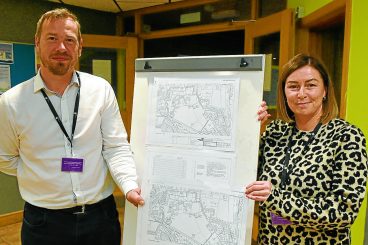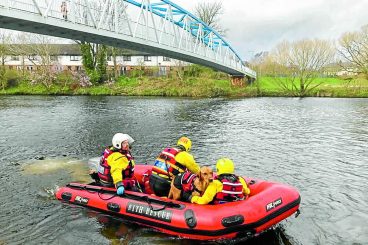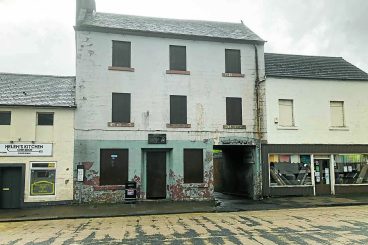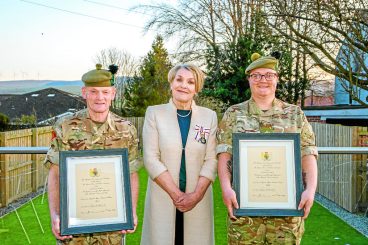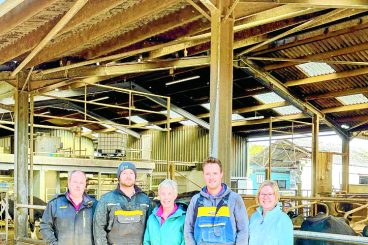He shared his musings with fellow members of Lockerbie and Lochmaben Probus Club and sent them to us as well.
After two years of National Service he signed up as a supply teacher in 1957 to get some experience before starting at teacher training college.
David said: “At that time I didn’t think that I would relate to small children very well and thought that the secondary school age range was likely to be more suited to my abilities.”
He was posted to a ‘difficult school’ and said: “This really was jumping in at the deep end as I reported to the school the next morning.
“I travelled by bus and was almost shaking with fright the nearer we got. I was met by the deputy head (I later found that the headmaster was on sick-leave with a nervous breakdown!) who was a real character. He wore a light brown tweed suit and a polka dot red and yellow bow tie – always. He also carried his cane with him wherever he went!”
After a brief introduction and assembly, he was given his first class, 1A.
David said: “Talk about shock, horror! Of course I had been a school student from the age of five to almost 19 and I had spent most of the first year in the RAF learning a trade but I had never been in front of a class before. I had no idea what I was supposed to do.”
His next class was to test his resolve even more: “My classroom door burst open and a hoard of yelling children poured through my room.
“The whole of that lesson I spent trying to break up fights. As soon as I separated one group, another started across the room. No amount of shouting, pulling apart, smacking, threatening made any difference. I think that I was close to bursting into tears as the time passed and I had taught nothing and achieved nothing.”
He added: “I can’t remember much about the rest of the day, but obviously I survived it. When I got home I sat down and immediately fell asleep.
“For the next six months or so, every time I sat on the bus going to school, it was a journey that I wished I hadn’t got to make. But I learned so much from that experience.”
At the end of the first term, he was made the form master for class 1C and said: “I had all sorts of ideas about how I was going to cope with this very unexpected turn of events. I had bought an old second hand textbook on child psychology. It emphasised that it was important in the learning process that the child should have a positive self-image. 1C certainly didn’t have that: they were always being told how dreadful they were. I thought that this was probably my first task.
“I told them that as everyone thought they were a hopeless class, it was time we gave everyone a shock and showed them how good we could be. Fortunately, they seemed to be receptive to the idea so we agreed that whenever anyone came into the class to speak to me – or the teacher in charge at the time – they would stop whatever they were doing and stand up in silence. They were quite excited about this and when the deputy head was one of our first visitors, they got to their feet in silence. He was in total shock. The class were absolutely thrilled to see his reaction and from then on we had quite a different atmosphere.
“It was early days but I was hopeful that this might have been the beginning of a much improved learning experience for them. I came to be quite fond of them.”
Comparing his own educational experience, David went to a historic grammar school with excellent equipment, facilities and materials.
His first school was old, solidly built Victorian building with another playground on the roof, only used by teachers.
David said: “As far as I know, it had no history to be spoken of; a very fast turnover of staff and those who remained had lost their zest for teaching. The equipment and facilities were dated and inadequate and there was a serious lack of materials and resources.
“Few pupils stayed at school beyond the mandatory leaving age limit. In those days you could leave school at the end of the term when you achieved your 15th birthday: there was no sixth form and very few took any exams.”
He was also shocked to encounter different expectations among the youngsters about the need for a good education versus earning money in a job.
David went on: “I survived the six months or so and often wondered why I was doing it. Even more, why on earth was I continuing with my plan to become a qualified teacher after this experience? I have no idea, except to say that I have always been ‘up for a challenge’.
“There is no doubt that this was an extremely valuable experience. I learned so much from it. But it was also a salutary lesson for me to remember that we don’t all start on our journey through life from the same place.”







